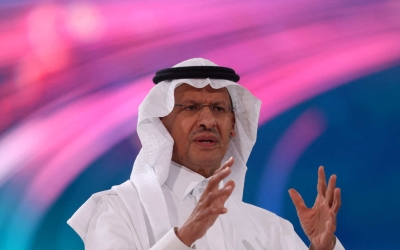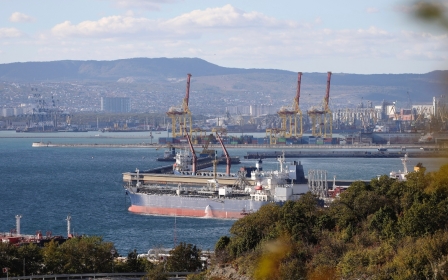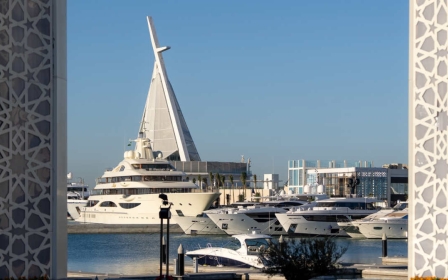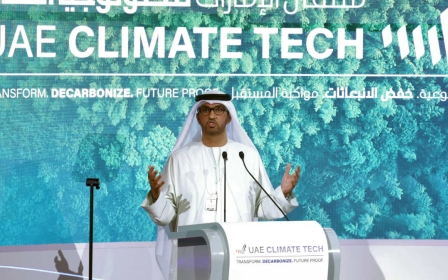Saudi Arabia says it silenced oil 'cynics' with Russia's help
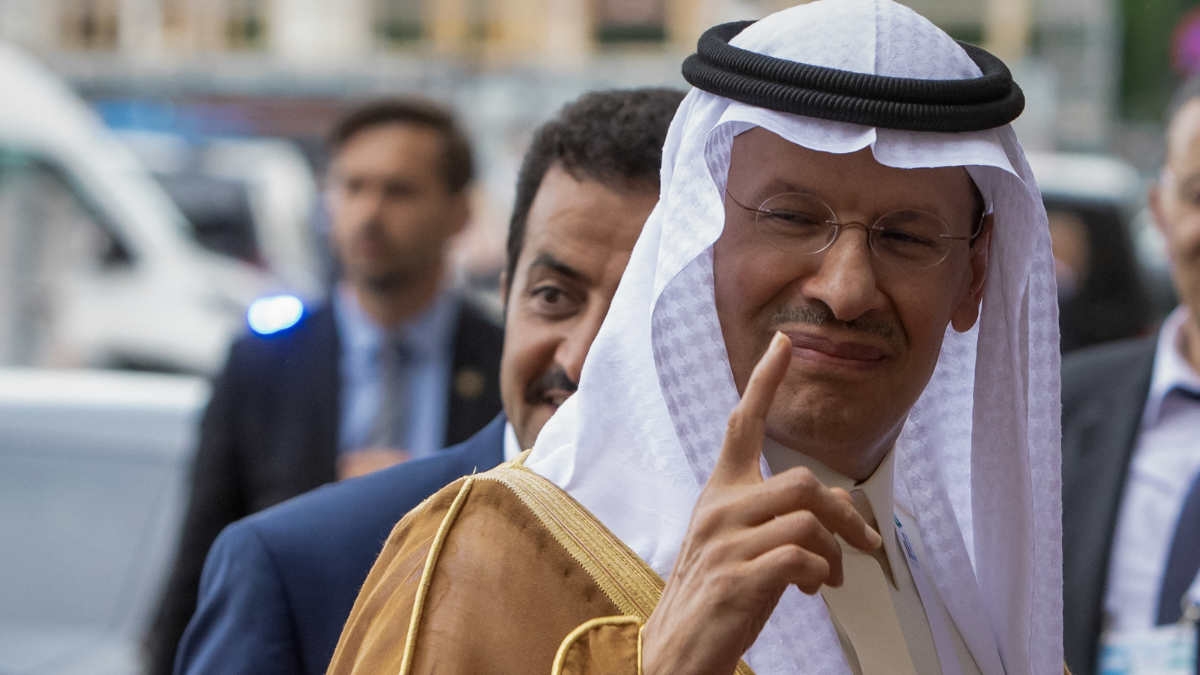
Saudi Arabia's energy minister said a recent decision to prolong oil production cuts along with Russia was in part a move to silence 'cynics' who had reported an alleged rift between Moscow and Riyadh.
On Monday, Saudi Arabia said that a production cut by Riyadh of one million barrels per day (bpd) that was first announced in June would extend into August and could be extended again.
The same day, Russia unveiled its export cut of 500,000 bpd for August "as part of efforts to ensure that the oil market remains balanced".
Speaking at an OPEC seminar in Vienna on Wednesday, Saudi Energy Minister Abdulaziz bin Salman said the coordinated announcement was "quite telling".
"Part of what we have done with the help of our colleagues from Russia was also to mitigate the cynical side of the spectators on what is going on between Saudi Arabia and Russia," he added.
New MEE newsletter: Jerusalem Dispatch
Sign up to get the latest insights and analysis on Israel-Palestine, alongside Turkey Unpacked and other MEE newsletters
In May, the Wall Street Journal reported mounting tensions between Saudi Arabia and Russia over oil production.
Saudi Arabia has been at the forefront of pushing members of Opec+, a group of oil producers led by Saudi Arabia and Russia, to cut production in a bid to lift prices which have fallen about 40 percent over the last 12 months.
Russia, however, has been flooding the market with oil. To make up for western sanctions and entice buyers, it is also selling its crude at a steep discount and muscling into Saudi Arabia's market share in big Asian countries like India and China.
Analysts previously told Middle East Eye that the changing oil flows could emerge as a sore point in Riyadh and Moscow's relationship.
It would be a rare case of acrimony at a time when Saudi Arabia, like other Middle Eastern states, has extended a hand to President Vladimir Putin helping him evade total isolation amid the war in Ukraine.
'No negativity'
Abdulaziz bin Salman has gained a reputation for lashing out against traders who bet against oil price declines.
He warned speculators they would be "ouching like hell" if they doubted his willingness to support prices and in June told them to "watch out" ahead of an Opec+ meeting.
Analysts believe the energy minister is under pressure from his half-brother, Crown Prince Mohammed bin Salman, to raise prices.
The international benchmark Brent has been trading at about $75 per barrel, but the IMF says the kingdom needs an oil price at least above $80 to balance its budget and see through projects like the $500bn megacity Neom, swanky Red Sea resorts and a new airline.
Brent North Sea crude, the international benchmark, was trading at around $75 per barrel on Wednesday.
Abdulaziz bin Salman was asked at the seminar about estimates that show Russia is far from reducing its production by the volume promised. He said Opec+ has called on "independent sources" to verify Russia's figures.
Moscow has "committed to this exercise and they are going to be doing it on a monthly basis", he said.
Asked about the markets' muted reaction to the recent production cuts, he called for patience and bristled at the markets' prevailing "negativism".
"We will do whatever is necessary, whatever it takes" to stabilise prices, he said.
Middle East Eye delivers independent and unrivalled coverage and analysis of the Middle East, North Africa and beyond. To learn more about republishing this content and the associated fees, please fill out this form. More about MEE can be found here.


